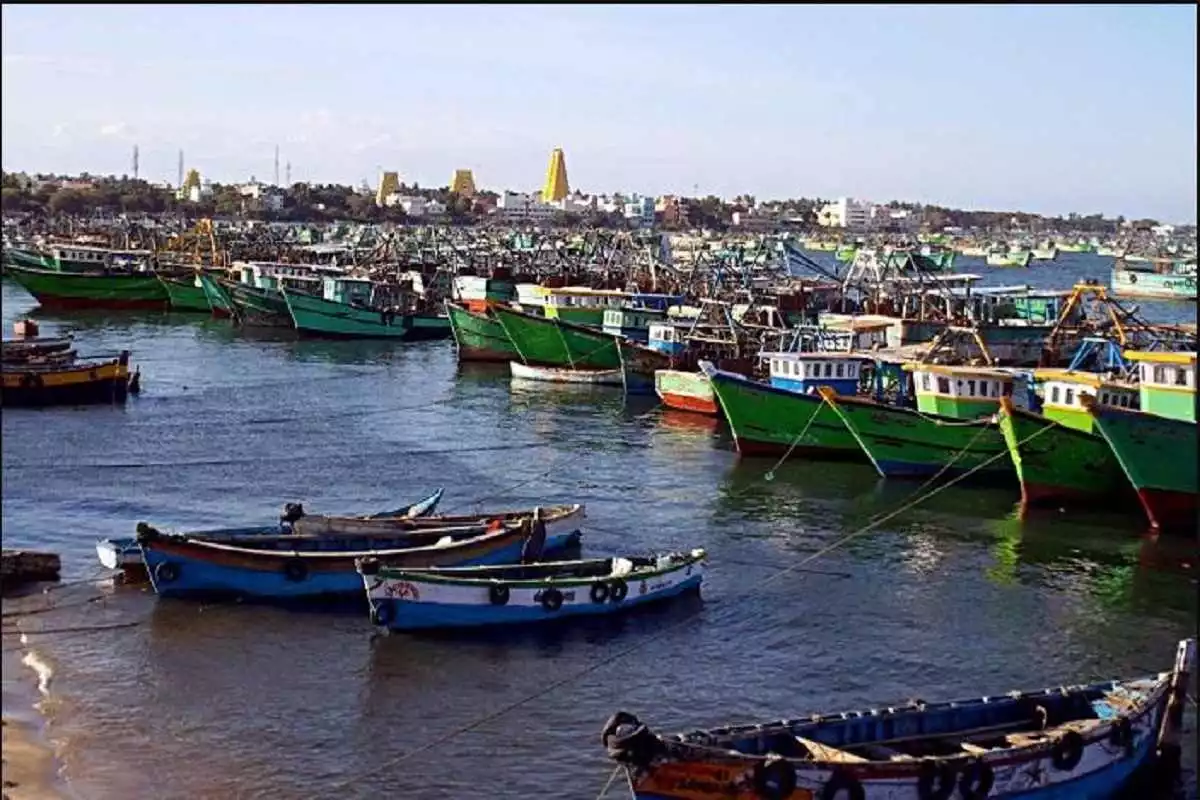
With the United Nations adopting the first-ever treaty to protect marine life on the high seas on June 19, India’s role in protecting its marine ecology has come to center stage. With nine coastal states, 1,382 islands and a vast coastline of over 7,500 km, India’s vast marine ecosystems are increasingly vulnerable to climate change.
The Indian coastal waters are extremely vibrant and comprise gulf waters, creeks, tidal flats, mud flats, coastal dunes, mangroves marshes, wetlands, seaweed and sea grass beds, deltaic plains, estuaries, lagoons, and coral reefs—all home to remarkable diversity of species, ranging from microscopic plankton to large marine mammals. However, this ecosystem, like most marine ecosystems globally, has been threatened by overfishing, pollution, habitat destruction, and climate change, all of which are degrading ocean health and leading to rising sea levels, ocean acidification, loss of marine biodiversity, and warmer waters.
The health of oceans is essential to the health of our planet—to improve the ocean ecosystem and reverse the current cycle of decline, efforts across spaces are underway to save and rehabilitate our oceans. With the recently concluded United Nations Biodiversity Conference (COP15), India is now looking to prepare a draft law to conserve 30% of the coastal and marine ecosystem by 2030. India also plans the restoration of 30% of degraded terrestrial and marine ecosystems. Only 8% of marine areas are currently under protection.
On a global scale, India is committed to ocean sustenance and conservation. India is a member of the High Ambition Coalition for Nature and People. It has also partnered with many countries in areas of integrated ocean management and the development of a framework for marine spatial plans to ensure sustainable development and conservation of ecosystems.
For instance, India has longstanding partnerships with the Netherlands for water-related projects focused on the United Nation’s Sustainable Development Goals. For the National Mission for Clean Ganga, a joint working group was formed to understand and leverage the Netherlands’ water security and water technology to reduce pollution and rejuvenate the Ganga River. The two countries have also collaborated on several integrated coastal zone management projects, which focus on the sustainable development and management of coastal areas, including measures to protect and conserve coastal ecosystems and biodiversity.
Other collaboration efforts include the signing of an MoU with Finland for the conservation of marine and coastal resources and partnering with the UK and other Japanese institutions to assess the impact of microplastics on marine organisms and coastal habitats to help develop management strategies to reduce plastic waste at the source.
It is no surprise that plastics are choking the ocean and the life it sustains. The Ministry of Earth Sciences, through its attached office National Centre for Coastal Research, regularly undertakes beach clean-up initiatives, awareness programs, and beach litter quantification studies. However, recognizing the urgent need to address this crisis, the Indian Government has banned single-use plastics, which account for more than 50% of plastic waste. Additionally, International Coastal Cleanup Day is conducted in the third week of September every year, with the Indian Coast Guard coordinating activities since 2006 to generate awareness of safe and clean beaches among coastal populations. In 2022, the “Swachch Sagar, Surakshit Sagar” mega campaign was also launched to clean up 75 beaches across the country’s more than 7,500 km coastline.
Apart from government programs, there are initiatives from the private sector in maintaining marine ecology. It is also worth noting that through its Ghost Net Retrieval program, the Chennai-based non-profit TREE Foundation has retrieved thousands of kilograms of ghost nets from the sea by incentivizing local fishermen. HCL Foundation is also focusing on protecting and promoting sustainable use of marine ecosystems: its NGO partners and fishermen communities along the coast of Chennai were directly engaged to retrieve 57,000 kg of ghost nets and marine debris.
Other not-for-profit organizations also contributed to the preservation of marine ecology. The ReefWatch Marine Conservation’s efforts are targeted at nurturing the diversity of life in coastal and marine environments. Coastal Impact is a Goa-based organization that studies and monitors India’s marine ecosystems and supports awareness, outreach, research, and conservation actions.
Awareness for conservation is another area. Terra Conscious is another enterprise that aims to promote responsible tourism in the state of Goa. Its Marine Wildlife Watching experiences are conducted in collaboration with local boat operators to help make existing trips more ethical and raise awareness about marine conservation. Sustainable and positive outcomes of the initiative have shown that the model reduces the stress and disturbance faced by dolphins during such excursions and promotes better monitoring of species while focusing on their well-being.
India’s booming startup ecosystem has also ventured into this space: for instance, Sea6 Energy, a Bengaluru-based seaweed enterprise, leverages patented technology to automate the cultivation of seaweed and harvest it. It consumed 5,000 tonnes of seaweed in 2022, with a target of more than 15,000 tonnes in 2023 for biofuels, plant defense products, animal feed ingredients, and other bio-renewable products to replace chemicals and plastics. Chennai-based startup Aquaconnect delivers AI-based aquaculture solutions to over 60,000 fish and shrimp farmers, helping them catch sea products such as shrimp and fish without harming oceanic bodies.
The country’s waters and their habitat contribute to its ecological richness, biodiversity, and climate – and it is our duty to protect it and nourish it at all costs. With the proper implementation of effective guidelines and policies, individual action, and resilient networks of Marine Protected Areas, India can breathe life back into our oceans through the much-needed clean marine ecology.

















